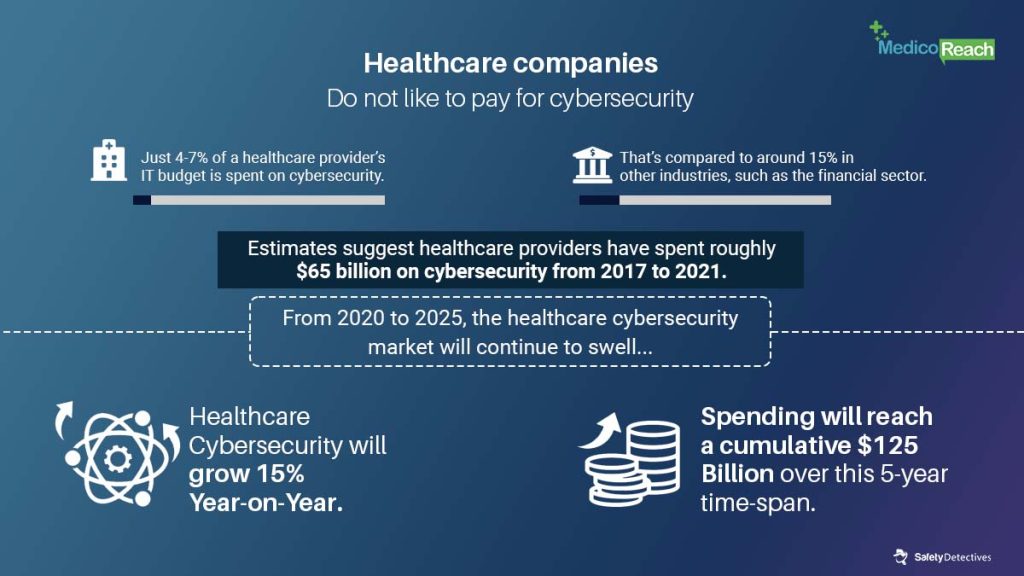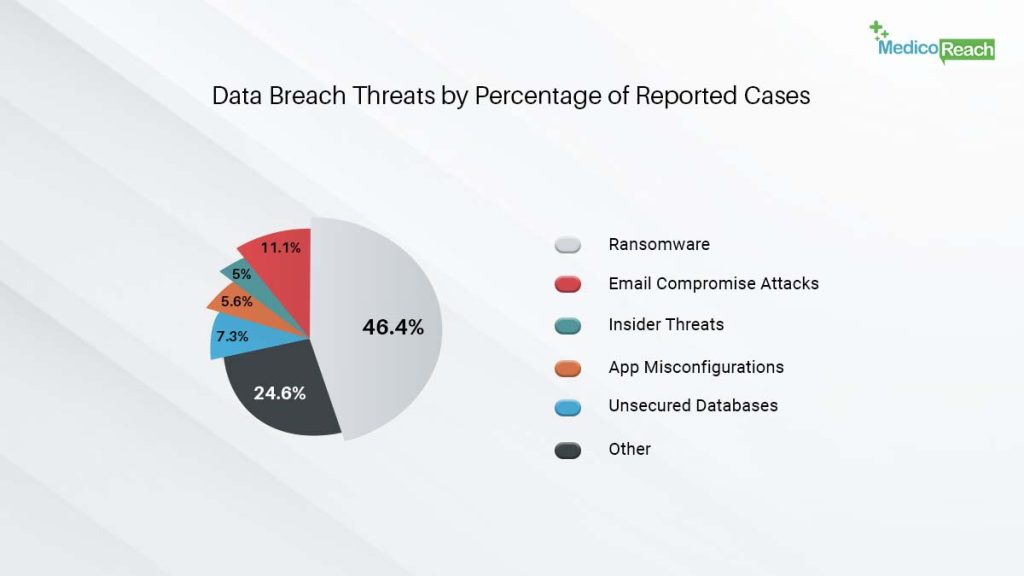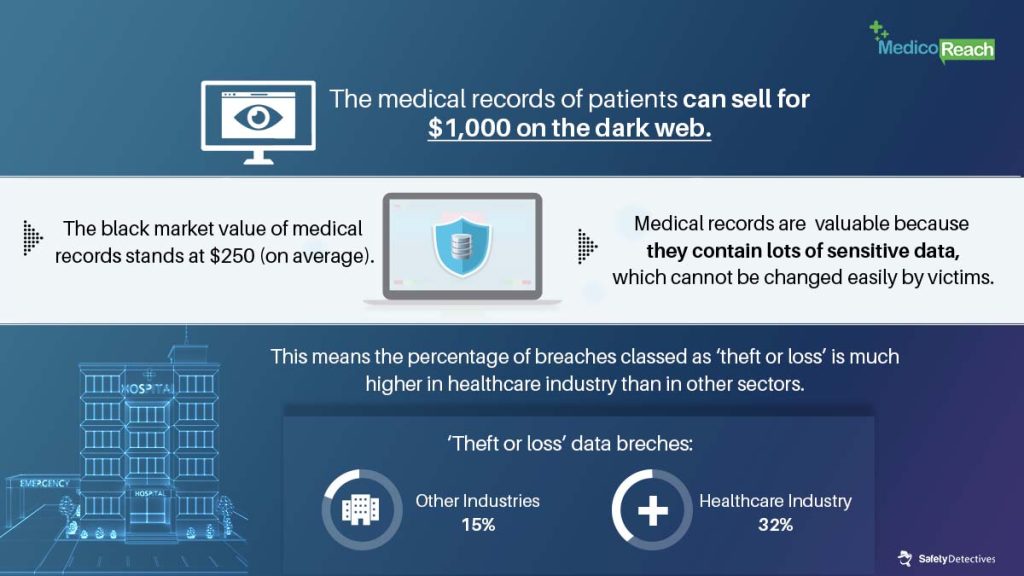
- Date: May 04, 2022
- Category:
As medical devices have become advanced with digital transformation, securing these devices has become an absolute must. Most of these devices deal with sensitive patient data and medical information. So, medical device cyber security aims to safeguard the data from breaches.
Hospitals and healthcare facilities across the globe are focusing more on protecting the data and controlling unauthorized access. This is important because cyber threats such as malware, ransomware, and DDoS attacks have become very common.
But, to upgrade your medical equipment security, you need to understand its significance. That’s why this article aims to cover all crucial aspects of it. So, read on.
Why Is Medical Device Cybersecurity So Important?

Whenever a medical device contains software and is connected to a network, it is vulnerable to cyber-attacks. Devices that do not include in-built security or when the health centers contact database doesn’t have any security measures, cyber threats can wreak havoc.
That’s why it’s extremely important to focus on securing these devices. As most patient treatments depend upon medical data, safeguarding it is essential for continuing quality treatments.
As a doctor, you must also consider the challenges to maintain patient privacy. Cyber-attacks can lead to the loss of sensitive patient information, medical data records and can cause a complete shutdown of medical devices.
The hacker might alter the patient information and disrupt the treatment procedures and often even cause mishaps. All this eventually will compromise the entire healthcare system and ruin your hospital’s reputation.
This is probably the reason why Stephane Nappo asserts that “it takes 20 years to build a reputation and only a few minutes of cyber-incident to ruin it.” So, be it a small or a large healthcare facility, implementing security standards for medical devices is necessary.
Ensuring Healthcare Data Compliance
Along with data safety, you also need to consider compliance. Any medical institution needs to follow the standards set by HIPAA (Health Insurance Portability and Accountability Act) for successful data compliance.
So, if you deal with sensitive Protected Health Information (PHI), you must have the proper technology and security measures to shield the data from breaches. However, failing to secure PHI can lead to a considerable penalty and even criminal prosecution.
That’s why you need to do the following:
- Implement proper security login to protect PHI
- Control access and analyze situations that can lead to a data breach
- Update your security systems to handle the latest cyber threats
If you feel you don’t have the means to secure patient information, you can contact a cyber security professional for advice.
Enhancing Treatment Accuracy
Medical devices play a vital role in maintaining the accuracy of treating acute diseases like breast cancer. These devices implement advanced AI-based algorithms that analyze the scans and images.
For example, they help detect a cell cluster in a patient’s CT scan to detect cancer. These algorithms are also effective in connecting multiple scan images to offer a clearer view to doctors.
All these features help decrease the rate of false positives in treatments. Radiologists can develop better treatment procedures based on medical device data. As a result, they can save and transform the lives of many patients.
Symptom Tracking
In some diseases, doctors develop treatment plans based on the severity of symptoms. Tracking the patient’s condition and symptoms frequently enables them to provide the best possible treatment. For this, connected medical devices are of utmost importance.
For instance, in diseases like Parkinson’s, Every individual doctor in the physician email directory have to monitor the patient’s condition frequently. They need to enter a patient’s condition after specific periods to devise a treatment plan. But it’s not always possible to enter data manually for monitoring.
- That’s when medical devices come into play, as they offer a secure and efficient mode of entering patient data and tracking their progress.
- Wearable devices offer better data tracking capabilities, and doctors prefer them for handling critical patients.
If a hacker gets hold of this data, it can completely jeopardize the patient’s health and doctor’s treatment procedures. Therefore, protecting these devices can decide the success or failure of effective symptom tracking.
Cybersecurity Challenges for Medical Devices

Before gearing up to protect medical devices, you need to understand the common security threats. Here are the most dangerous cyber-attacks the healthcare industry currently faces:
- Data breaches that lead to loss of medical data and PHI
- Ransomware attacks where the attacker withholds sensitive device information and asks for a ransom to release it
- DDoS attacks can flood healthcare system servers with data that eventually shut them down
- Malware can damage a medical device or computer and provide unauthorized access to the hacker
These unfortunate situations can completely damage the devices and hamper treatment plans and affect the lives of all patients associated with the healthcare system.
How to Protect Medical Devices?

It’s time to focus on medical device cyber security and implement the best practices. These include multiple steps as ensuring security consists of multiple strategies.
- Use encrypted data storage and communication to prevent unauthorized access
- Strong passwords with numbers, characters, and symbols
- Isolating these devices by restricting the networks they’re connected to
- Update the security software firewall and install device patches regularly
- Utilize advanced security tools like Microsoft Advanced Threat Analytics to detect abnormal server activity and intrusions
Wrapping Up
One of the best ways to maintain medical device security is by educating your healthcare staff about it. You can include device security as a part of their training programs. Seminars, webinars, and workshops can also be effective in this case.
Remember a diligent focus on device security will help your hospital stand apart and take your treatment quality to another level.



